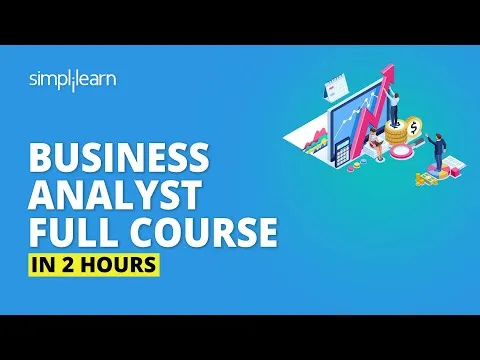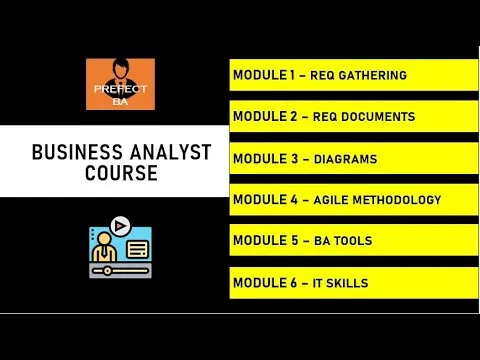
Data Models and Decisions in Business Analytics 
This course provides an introduction to the fundamentals of data models and decision-making in business analytics. It covers topics such as probability, statistics, stochastic modelling, and optimization, and how to use these principles to construct systematic frameworks for decision-making in a dynamic situation. Students will learn how to use historical data to identify underlying models and patterns, and how to use optimization methods and software to address decision issues under uncertainty. ▼
ADVERTISEMENT
Course Feature
![]() Cost:
Cost:
Free
![]() Provider:
Provider:
Edx
![]() Certificate:
Certificate:
No Information
![]() Language:
Language:
English
![]() Start Date:
Start Date:
Self Paced
Course Overview
❗The content presented here is sourced directly from Edx platform. For comprehensive course details, including enrollment information, simply click on the 'Go to class' link on our website.
Updated in [May 17th, 2023]
This course, Data Models and Decisions in Business Analytics, provides an overview of the fundamental principles from probability, statistics, stochastic modelling, and optimization used to construct systematic frameworks for decision-making in a dynamic situation. Students will learn how to identify the underlying model and pattern using historical data, and how to apply optimization methods and software to address decision issues under uncertainty in business applications.
[Applications]
The application of this course can be seen in various business analytics scenarios. It can be used to develop models and decision-making frameworks for dynamic situations. It can also be used to learn underlying models and patterns from historical data. Additionally, optimization methods and software can be used to address decision issues under uncertainty. Furthermore, the course can be used to develop strategies for decision-making in a variety of business contexts.
[Career Paths]
1. Business Analyst: Business Analysts are responsible for analyzing data and developing insights to help inform business decisions. They use a variety of tools and techniques to identify trends, patterns, and correlations in data. They also develop models and simulations to predict future outcomes. As businesses become increasingly data-driven, the demand for Business Analysts is expected to grow.
2. Data Scientist: Data Scientists are responsible for collecting, analyzing, and interpreting large amounts of data. They use a variety of techniques to uncover insights and develop predictive models. They also develop algorithms and software to automate data analysis processes. As businesses become more reliant on data-driven decision-making, the demand for Data Scientists is expected to increase.
3. Machine Learning Engineer: Machine Learning Engineers are responsible for developing and deploying machine learning models. They use a variety of techniques to build models that can learn from data and make predictions. They also develop algorithms and software to automate the process of building and deploying machine learning models. As businesses become more reliant on machine learning, the demand for Machine Learning Engineers is expected to grow.
4. Artificial Intelligence Engineer: Artificial Intelligence Engineers are responsible for developing and deploying AI-based solutions. They use a variety of techniques to build AI systems that can learn from data and make decisions. They also develop algorithms and software to automate the process of building and deploying AI-based solutions. As businesses become more reliant on AI-based solutions, the demand for Artificial Intelligence Engineers is expected to increase.
[Education Paths]
1. Bachelor of Science in Business Analytics: This degree program provides students with the skills and knowledge to analyze data and make informed decisions in a business setting. Students learn how to use data-driven techniques to identify trends, develop strategies, and optimize operations. This degree is becoming increasingly popular as businesses become more data-driven and competitive.
2. Master of Science in Business Analytics: This degree program provides students with advanced skills and knowledge in data analysis and decision-making. Students learn how to use data-driven techniques to identify patterns, develop strategies, and optimize operations. This degree is becoming increasingly popular as businesses become more data-driven and competitive.
3. Doctor of Philosophy in Business Analytics: This degree program provides students with the highest level of expertise in data analysis and decision-making. Students learn how to use data-driven techniques to identify patterns, develop strategies, and optimize operations. This degree is becoming increasingly popular as businesses become more data-driven and competitive.
4. Master of Business Administration in Business Analytics: This degree program provides students with the skills and knowledge to analyze data and make informed decisions in a business setting. Students learn how to use data-driven techniques to identify trends, develop strategies, and optimize operations. This degree is becoming increasingly popular as businesses become more data-driven and competitive.
Course Provider

Provider Edx's Stats at AZClass
Discussion and Reviews
0.0 (Based on 0 reviews)
Explore Similar Online Courses

Canva Tutorial in Hindi Beginner to Advance

Mindfulness: What It Is Where It Comes From and How to Practice It

Python for Informatics: Exploring Information

Social Network Analysis

Introduction to Systematic Review and Meta-Analysis

The Analytics Edge

DCO042 - Python For Informatics

Causal Diagrams: Draw Your Assumptions Before Your Conclusions

Whole genome sequencing of bacterial genomes - tools and applications

Business Analyst Full Course In 2 Hours Business Analyst Training For Beginners Simplilearn

Business Analyst Training for Beginners Business Analysis Tutorial Invensis Learning


Start your review of Data Models and Decisions in Business Analytics